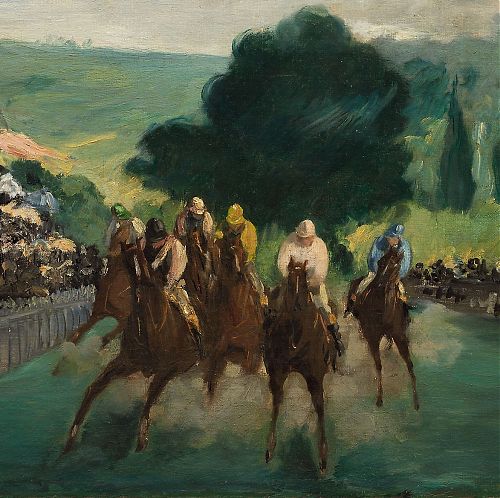Realism Reevaluated
Editor's Note
Contributors
George Eliot's Epic Syntax: History and Totality in Middlemarch
Through a claim that George Eliot’s sentences mark a move in realism toward “epic syntax” that glimpses the particularities of capitalist social relations, Thomas Laughlin argues that what is particular about Eliot’s literary form — and perhaps realist fiction more broadly — is not only mimetic, but formal.
Country and City in the Proletarian Realist Novel: Kang Kyŏng-ae’s From Wŏnso Pond and Peter Abrahams’s Mine Boy
In order to counter the claim that both of the novels he examines are “clinging to the supposedly naïve projects of literary mimesis and socialist commitment,” Jacob Sloan posits that such criticisms naïvely equate formal sophistication with political sophistication.
The Historical Novel in Peru: José María Arguedas’ Yawar Fiesta
Attending to the ambitions of the realist mode, Ericka Beckman explores the different ways realism registers uneven development at different moments within the history of capitalism. Ultimately, she claims that Peruvian José Maria Arguedas’ realist form articulates “how indigenous people and belief systems” are “subject to historical transformation” brought on by capitalism.
Prolegomena: Prospective Realism in a Present Without Future
Investigating the realist form from within a crisis of futurity, Mathias Nilges asserts that capitalist realism is not necessarily the “exhaustive foreclosing” of possibility many have understood it to be. Rather, the new realist forms of the past decade might better be understood as opportunities to critique such a view through what he calls a “prospective realism.”
Climate Realism, Capitalist and Otherwise
Through an analysis of Kim Stanley Robinson’s New York 2140 alongside Mark Fisher’s capitalist realism, Anna Kornbluh asserts that even if the content of Robinson’s novel has much of the mimetic trappings of realism, its form does not. Building on this dialectical tension, Kornbluh asks whether or not capitalist realism is “mood, or mode?”
Interpretation without Method, Realism without Mimesis, Conviction without Propositions
Nicholas Brown suggests that the prominent Brazilian literary critics Antonio Candido and Roberto Schwarz extend Georg Lukács conception of realism, with implications not only for literary interpretation but for the “cognitive dignity” of art.
Review Dossier
Introduction: Reading Capitalist Realism, Ten Years On
Matthew Flisfeder introduces a roundtable that commemorates the tenth anniversary of Mark Fisher’s Capitalist Realism.
Capitalism is the End of the World
Jodi Dean reads Mark Fisher’s “Exiting the Vampire Castle” and its use of comradeship and solidarity alongside Doris Lessing’s The Golden Notebook.
The Breakdown of Capitalist Realism
Benjamin Noys examines the “substance” of Mark Fisher’s Capitalist Realism in order to argue that the text serves more than a diagnostic function in our present moment.
“Is There No Time?” A Conversation with Mark Fisher
Leigh Claire La Berge reflects on Mark Fisher’s legacy.
We Still Have a World to Win: From Capitalist Realism to Post-Capitalist Desire
Kai Heron examines Mark Fisher’s Capitalist Realism through his later essay, “Post-Capitalist Desire.”
Setting Fire to Wet Blankets: Radical Politics and Hollywood Franchises
Dan Hassler-Forest discusses Mark Fisher’s approach to the “eternal problem” of attempting to distance the meaning of an interpretive object such as popular culture from its clear positioning within the realm of the commodity — especially when that meaning challenges the status quo.
Book Reviews
Reading Adorno
Robert Ryan reviews Josh Robinson's Adorno’s Poetics of Form.Neoliberalism Then, Now, and Then Again
Jessica Hurley reviews Myka Tucker-Abramson’s Novel Shocks: Urban Renewal and the Origins of Neoliberalism.
